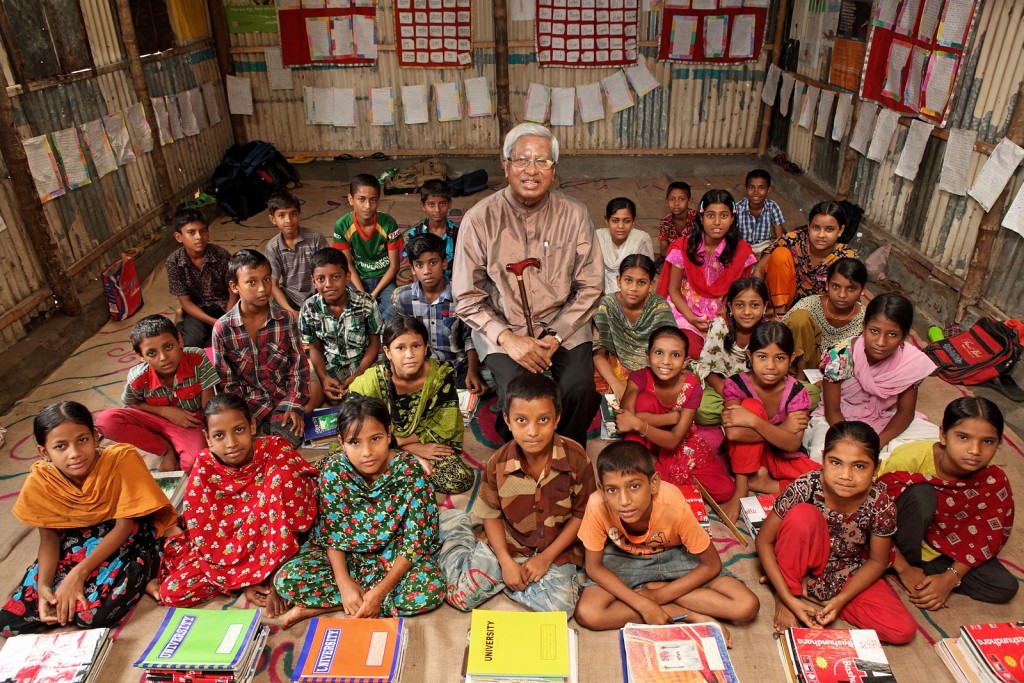Sir Abed spoke on “Leading Development in Bangladesh” as part of Yale SOM’s Leaders Forum lecture series, which brings global CEOs and heads of organizations to campus to speak with students.
BRAC’s approach has proven successful, making the organization the world’s largest NGO with an annual budget exceeding $700M, 80% of which is generated from its social enterprises. In Freedom from Want, Ian Smillie calls BRAC “undoubtedly the largest and most variegated social experiment in the developing world. The spread of its work dwarfs any other private, government or non-profit enterprise in its impact on development.”

Founder and Chairperson of BRAC Sir Fazle Hasan Abed has visited Karail slum and BRAC School in Dhaka. He went there for a photo session of WISE book.
The trajectory of poverty alleviation is a long one, and while some organizations focus solely on social protection programs or microfinance, Sir Abed described the importance of providing “disruptive” approaches to the plight of poverty. BRAC’s unique response led to the creation of the Graduation approach designed to increase the social and economic capital of the world’s poorest families.
The Graduation approach empowers families living on less than 70 cents a day to transition out of ultra-poverty through a series of carefully sequenced interventions—giving these families the skills and confidence to improve their livelihoods, participate in mainstream development activities, and maintain an upward economic trajectory.
The typical participant in BRAC’s program is a woman, often a widow, raising two or more children, unable to afford a sufficient meal (consisting of a mixture of rice and water), working as a day laborer, and isolated from mainstream development programs. These women are in a cyclical “reproduction of poverty” according to Abed, unable to escape from or improve upon their circumstances.
BRAC works with communities to identify their poorest neighbors in a process called “targeting.” The selected participants are then invited to enroll in a two year program where they will receive a primary asset (such as a dairy cow or goat) along with a cash stipend to tide them over until their assets start generating income. A BRAC program officer holds weekly home visits with each participant to check on her progress, teach her about basic hygiene, and build her self-confidence.
Over a decade later, BRAC’s Graduation approach has shown consistently promising results. A CGAP case-study report from July last year showed that more than 415,000 households graduated in 2012 alone on the basis of participants meeting six out of nine indicators, including food security, asset ownership, improved housing and school enrollment. Sir Abed is hopeful. “The World Bank President said that extreme poverty needs to be eradicated by 2030, and we’re hoping this program, which has been tested in 10 sites—all of them showing good results with randomized control trials—will be a part of the solution,” he said.
However, in the coming years, the greatest challenge for the Graduation approach will be adapting the approach for global scale. Amplifier’s Uplift has identified expert practitioners who are adapting the Graduation approach to their geographical context and philanthropists inspired to support the next million women to graduate out of ultra-poverty by 2020.
More information about Amplifier’s partnership with BRAC and Uplift can be found here.
Sir Fazle Hasan Abed is the founder and chairperson of BRAC.
Filters